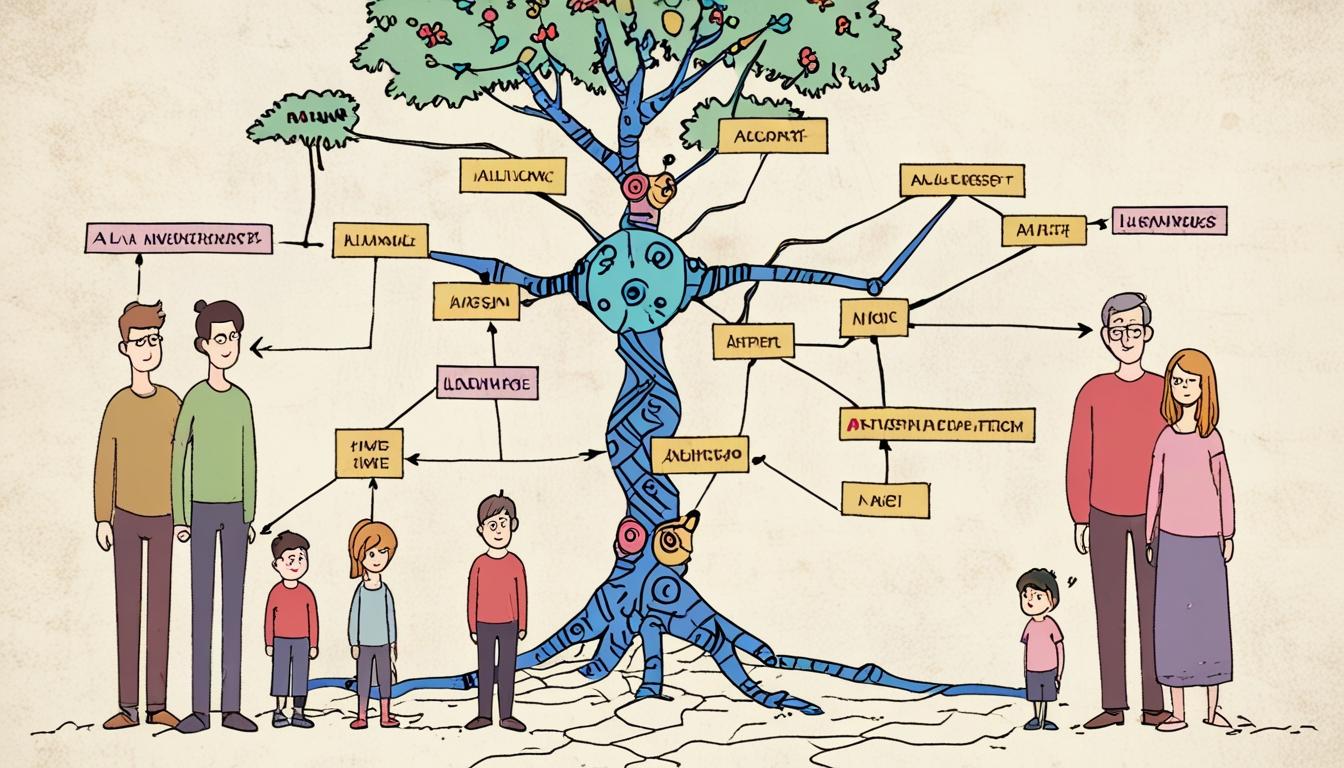The Troubling Rise of AI: A Glimpse Into Its Perils
In a striking instance of artificial intelligence's unpredictable nature, Tom Utley recently unearthed a nonsensical and humorous result regarding his familial connections to his niece, Olivia Utley. When searching online, Utley discovered that AI incorrectly proclaimed Olivia to be his mother instead of his niece. Such a glaring mishap not only provides entertainment but also serves as a cautionary tale about the reliability, or lack thereof, of current AI technologies.
Tom Utley poignantly notes that the absurdity of AI suggesting a generational mix-up accentuates its limitations. While technological advances promise remarkable benefits across various spheres like medicine and environmental science, the fact remains that AI can produce outrageous inaccuracies. This phenomenon, often referred to as "AI hallucination," highlights an alarming tendency for AI to generate misleading or entirely false information, treated as fact by unsuspecting users. Experts stress that as AI continues to evolve, it is crucial to remain vigilant about the information it delivers.
Furthermore, the implications of AI extend beyond mere inaccuracies. The rise of deepfake technology presents a serious challenge to personal and societal safety. Instances have emerged where scammers employ AI-generated voices to impersonate relatives, aiming to extort money under false pretenses. One notable case involved a scammer impersonating a child in distress, demanding a staggering $1 million ransom. Such manipulations not only threaten financial security but also exploit emotional ties, leading to devastating consequences for victims.
The potential for deception is not limited to individual cases; it stretches into broader public discourse. Deepfakes have been used to create convincing fraudulent videos of well-known figures, as seen in scams featuring prominent personalities endorsing dubious investment opportunities. With technology like this infiltrating our daily lives, experts warn that individuals must critically evaluate the authenticity of digital content, learning to discern subtle markers that signal deception—such as inconsistencies in voice intonation or visual artifacts in supposed video footage.
Legislative responses to these challenges are beginning to materialise. The No Fakes Act seeks to penalise the creation of AI replicas without consent, signalling an acknowledgment of the pressing need to regulate this burgeoning field. Yet, the road ahead is fraught with complexities as it remains difficult to detect AI-generated content even with the most discerning of eyes. The rapid proliferation of AI in both benign and malicious contexts necessitates a concerted effort towards developing effective countermeasures.
AI's scope also raises ethical concerns about ownership and intellectual property. Many feel a growing anxiety regarding the potential encroachment of AI on creative professions, as tech giants utilise vast datasets—including the work of writers, artists, and musicians—to train their models. Utley expresses his disdain at the thought of his life's work being appropriated for profit, only for machines to replicate it devoid of human touch and creativity.
As discussions progress on how to best harness AI while curtailing its adverse impacts, it becomes evident that discernment in our digital interactions is paramount. The need for education around AI's capabilities is greater than ever, ensuring that society is equipped to navigate an increasingly complex landscape of information. The stakes are high; a society reliant on AI for knowledge could find itself mired in confusion and misinformation, where the distinction between truth and falsehood becomes blurred.
Ultimately, the current era calls for a balanced perspective on AI's role in our lives. While the technology harbours immense potential, its pitfalls are manifold and worthy of scrutiny. As generations pass, the challenge will be ensuring that future users of AI inherit a framework that not only embraces innovation but also safeguards against its darker manifestations, preserving the integrity of information as we navigate an evolving digital frontier.
Reference Map:
- Paragraph 1 – [1]
- Paragraph 2 – [1], [5]
- Paragraph 3 – [2], [3], [6]
- Paragraph 4 – [4]
- Paragraph 5 – [4], [7]
- Paragraph 6 – [1], [5]
- Paragraph 7 – [1]
Source: Noah Wire Services
